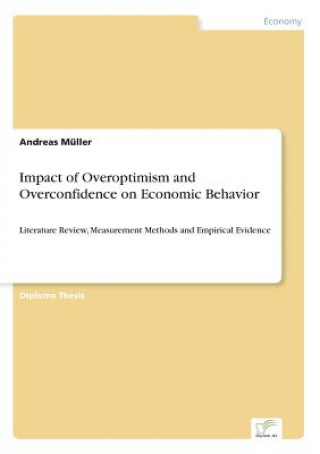
Code: 02413831
Impact of Overoptimism and Overconfidence on Economic Behavior
by Andreas Müller
Inhaltsangabe:Introduction: Economic theory normally focuses on rational agents optimizing individual utility. Since the second half of the 20th century, this viewpoint has been enriched by findings from the field of psychology. ... more
- Language:
 English
English - Binding: Paperback
- Number of pages: 82
Publisher: Diplom.de, 2007
- More about this

72.05 €
RRP: 77.47 €
You save 5.43 €

In stock at our supplier
Shipping in 15 - 20 days
You might also like
-

Chemical Neurobiology
177.51 € -

Love Poems from God
20.52 € -11 % -

Old Texts, New Practices
82.21 € -

Migration and Insecurity
68.93 € -

Vražedná tajemství a další příběhy
18.81 € -21 % -

DIX-NEUF SECONDES
10.96 € -

Aufbau und Charakterisierung eines Systems zur Mikrobearbeitung mit Ultrakurzpulslaser
47.19 € -7 %
Give this book as a present today
- Order book and choose Gift Order.
- We will send you book gift voucher at once. You can give it out to anyone.
- Book will be send to donee, nothing more to care about.
More about Impact of Overoptimism and Overconfidence on Economic Behavior
You get 181 loyalty points
 Book synopsis
Book synopsis
Inhaltsangabe:Introduction: Economic theory normally focuses on rational agents optimizing individual utility. Since the second half of the 20th century, this viewpoint has been enriched by findings from the field of psychology. A new trait of research was created called żbehavioral economicsż. It takes into account subjective characteristics such as asymmetric preference and judgment, or limits of rational processing, willpower, and greed. This paper aims to give an overview of two related human traits that have attracted particularly wide interest, namely overconfidence and overoptimism. The two are closely related to each other, and often used synonymously. Broadly speaking, overconfidence results in underestimation of future risks, e.g. the riskiness of future cash flows, whilst overoptimism leads to an overestimation of future positive outcomes, e.g. the future returns of a company. Besides, the paper wants to deduct suggestions for further research, by systematically identifying uncovered topics in existing literature. Usually Alpert and Raiffa are credited with the first discovery of overconfidence. However, the most influential study is probably Russo and Schoemaker. It was published in the Sloan Management Review and communicated the topic to a broader audience for the first time. In particular, it revealed that assumingly rational managers were prone to overconfidence, too. This challenged traditional management doctrines and generated interest in a better understanding of the topic and further research. To exemplify overconfidence, Russo and Schoemaker asked managers to give numerical intervals for ten general-knowledge questions, such that nine out of the ten answers would be correct. On average participants included the correct value within their interval only 5 out of 10 times, i.e. they underestimated potential errors in their estimations. Svenson is probably the most influential source regarding overoptimism. He made the subject intuitively understandable and established a standard measurement method that could be easily used for subsequent research. To give an example of overoptimism: Svenson asked students to compare their driving skills to those of their classmates. Roughly 80% believed they belonged to the top 50%, i.e. they overestimated their abilities. This paper also provides a closer look at the empirical methods normally applied in field studies. Although the phenomena are intuitively understandable, empirical research [...]
 Book details
Book details
Book category Książki po angielsku Economics, finance, business & management Business & management Management & management techniques
72.05 €
- Full title: Impact of Overoptimism and Overconfidence on Economic Behavior
- Subtitle: Literature Review, Measurement Methods and Empirical Evidence
- Author: Andreas Müller
- Language:
 English
English - Binding: Paperback
- Number of pages: 82
- EAN: 9783836606295
- ISBN: 3836606291
- ID: 02413831
- Publisher: Diplom.de
- Weight: 118 g
- Dimensions: 210 × 148 × 5 mm
- Date of publishing: 31. October 2007
Trending among others
-

Millionaire Fastlane
26.46 € -

High Output Management
16.70 € -12 % -

Extreme Ownership
23.24 € -24 % -

The Coaching Habit
17.50 € -3 % -

Hooked
12.87 € -22 % -

Principles
26.05 € -21 % -

The Making of a Manager
15.09 € -29 % -

Professional Product Owner, The
33.50 € -1 % -

The Daily Stoic
12.97 € -29 % -
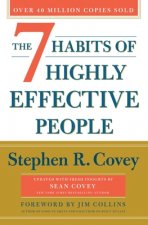
7 Habits of Highly Effective People
22.23 € -
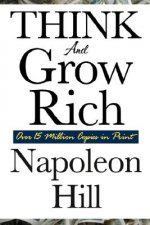
Think and Grow Rich
11.46 € -
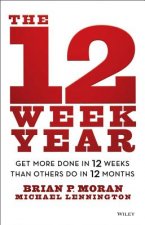
12 Week Year - Get More Done in 12 Weeks than Others Do in 12 Months
18.51 € -28 % -

Essentialism
12.87 € -22 % -

Effective Change Manager's Handbook
59.57 € -5 % -

Unlimited Memory
15.99 € -23 % -
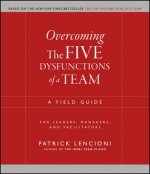
Overcoming the Five Dysfunctions of a Team - A Field Guide for Leaders, Managers and Facilitators
22.13 € -26 % -

Accelerate
17.70 € -22 % -

Getting Things Done
16.80 € -14 % -
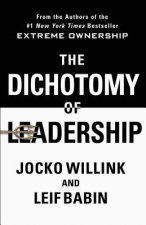
Dichotomy of Leadership
26.76 € -13 % -

Radical Candor: Fully Revised & Updated Edition
22.33 € -

Wooden on Leadership
24.14 € -28 % -

Spiral Dynamics - Mastering Values, Leadership and Change
36.12 € -7 % -

Leading Change, With a New Preface by the Author
26.86 € -17 % -

Collaborating with the Enemy: How to Work with People You Dont Agree with or Like or Trust
17 € -26 % -

One Plus One Equals Three
10.96 € -25 % -

Toyota Kata: Managing People for Improvement, Adaptiveness and Superior Results
30.78 € -15 % -

Drive
10.56 € -20 % -
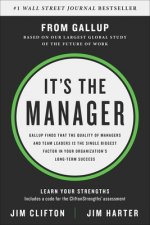
It's the Manager
38.84 € -4 % -

Find Your Why
16.39 € -23 % -

One Minute Manager
8.14 € -20 % -

Principles of Scientific Management
7.44 € -15 % -

Art of People
10.96 € -23 % -

BPMN Quick and Easy Using Method and Style
35.21 € -

Smart Choices
27.36 € -23 % -

Building and Sustaining a Coaching Culture
58.76 € -2 % -

Fish!
10.66 € -20 % -

Slack
14.98 € -12 % -

Navy SEAL Art of War
19.21 € -26 % -

Harvard Business Review on Winning Negotiations
19.21 € -25 % -

Essentials of Project and Systems Engineering Management 3e
218.07 € -

Fundamentals of Management, Global Edition
96.50 € -

CEO Next Door
17.20 € -20 % -

HBR Essential 20-Minute Manager Collection (5 Books) (HBR 20-Minute Manager Series)
46.89 € -22 % -

Spiral Dynamics in Action - Humanity's Master Code
25.15 € -27 % -

Business Chemistry - Practical Magic for Crafting Powerful Work Relationships
21.83 € -24 % -

Techniques for Coaching and Mentoring
70.84 € -
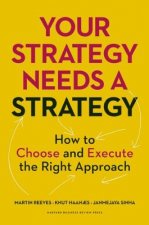
Your Strategy Needs a Strategy
28.27 € -20 % -

Value - The Four Cornerstones of Corporate Finance
33 € -

Business Dynamics: Systems Thinking and Modeling for a Complex World (Int'l Ed)
70.64 €
Osobní odběr Bratislava a 2642 dalších
Copyright ©2008-24 najlacnejsie-knihy.sk Wszelkie prawa zastrzeżonePrywatnieCookies


 Vrácení do měsíce
Vrácení do měsíce Zdarma od 49.99 €
Zdarma od 49.99 € 02/210 210 99 (8-15.30h)
02/210 210 99 (8-15.30h)